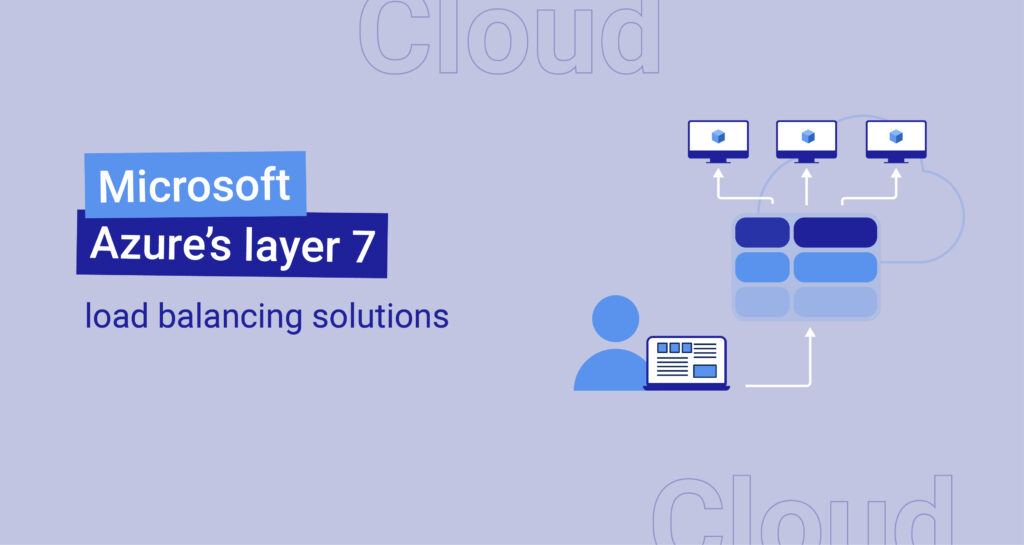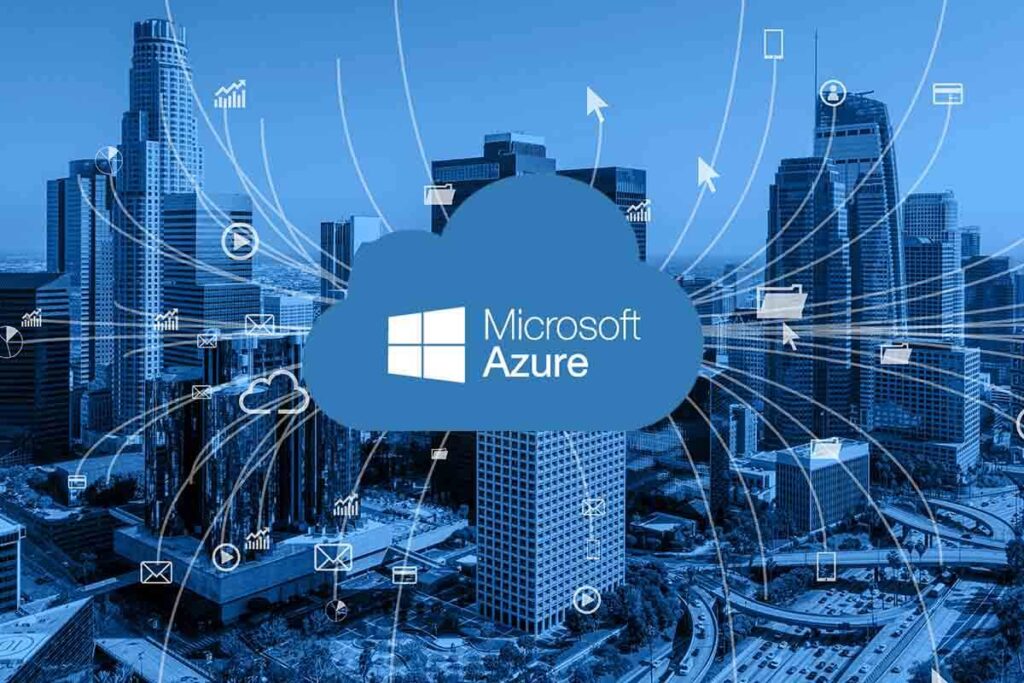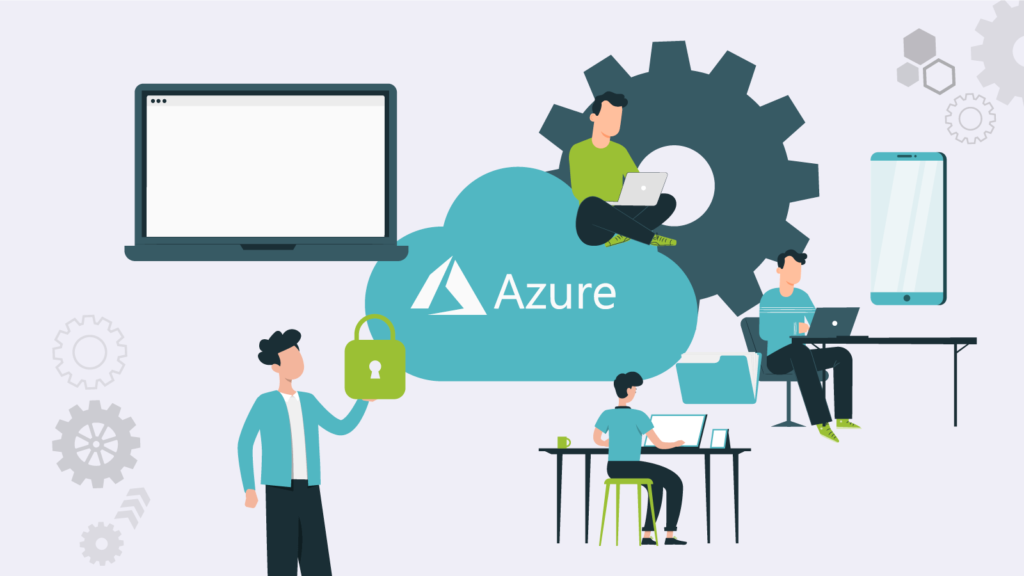Buy Verified Microsoft Azure Cloud
Microsoft Azure Cloud empowers businesses with a comprehensive cloud computing platform and a wide range of services, including computing, storage, networking, databases, analytics, machine learning, artificial intelligence (AI), Internet of Things (IoT), etc. With Azure, businesses can develop, deploy, and manage applications and services globally, tapping into a network of over 300 data centers worldwide, thereby feeling connected and empowered.
Key features and services offered by Microsoft Azure Cloud include:
Compute: Azure provides virtual machines, containers, serverless computing resources, and other computing resources to run applications and workloads.
Storage: Azure offers various storage options, including blob storage, file storage, disk storage, and data archival solutions.
Networking: Azure offers virtual networks, load balancers, VPN gateways and other networking services to connect and scale applications.
Databases: Azure also provides managed database services, including Azure SQL Database, Cosmos DB MySQL PostgreSQL etc, for applications requiring data storage services.
Azure offers services for big data analytics, data warehousing, real-time analytics and AI-powered analytics. In terms of machine learning and AI models, it offers machine learning services, cognitive services, and tools that facilitate the building and deployment of models on Azure.
Azure provides solutions for IoT device management, telemetry ingestion, analytics and visualization, as well as security and identity services such as identity and access management, threat detection and monitoring.
Developer Tools: Azure offers tools and services to enable software development, DevOps operations, continuous integration and deployment.
Overall, Microsoft Azure Cloud provides organizations with an efficient and secure means of building, deploying, and managing applications and services in the cloud. It competes against significant cloud platforms such as Amazon Web Services (AWS) and Google Cloud Platform (GCP).
 How to create and Buy Verified Microsoft Azure Clouds:
How to create and Buy Verified Microsoft Azure Clouds:
Establishing a Microsoft Azure Cloud account involves several steps.
Here is an outline of how to open one:
Navigating to Azure Website: Navigate to Microsoft Azure Cloud website by going to https://azure.microsoft.com/
Signing Up for Azure: Clicking the “Start Free” or “Start for Free” button allows you to begin using Azure freely without incurring costs, typically providing a trial period or free tier that allows for limited usage for a specified period.
Sign in using a Microsoft Azure Cloud account: If you already have an Outlook.com, Hotmail, Xbox Live, or Skype account from Microsoft Azure Cloud, use that account to sign in. Otherwise, create one to sign in.
Supply Information: When signing up, you’ll be asked for some basic details such as your email address, phone number, country/region and payment info (if needed for account verification purposes).
Verifying Your Identity: Microsoft may require that you confirm your identity by providing a verification code to either your email or phone number.
Agree to the Terms and Conditions: Read through and agree to both their Terms of Service and Privacy Policies before signing the Contract of Service Agreements.
When you’re ready to select a subscription plan, consider your specific needs and the features each plan offers. Azure provides various free trials or tiers, as well as paid subscription options with different features and resources. Take your time to review these options and choose the one that best meets your requirements.
During the sign-up process, Azure may ask for payment information such as your credit card details. This is for billing purposes and to ensure that you can be charged should your usage exceed the limits of the free trial. Rest assured, you won’t be charged unless you exceed the free trial limits.
Complete the Sign-up Process: After providing all the required information and selecting a subscription plan, you can complete the sign-up process.
Once you’ve created an Azure account, the Azure portal offers access to manage resources, deploy services and explore features and capabilities of this cloud computing platform.
Verified Microsoft Azure Cloud Accounts
Below are frequently asked questions (FAQs) about Microsoft Azure Cloud:
What Is Microsoft Azure Cloud?
Microsoft Azure Cloud is a comprehensive cloud computing platform and set of services offered by Microsoft that includes computing resources, storage solutions, networking capabilities, databases, analytics tools, machine learning services and much more.
What can I do with Microsoft Azure Cloud?
With Azure, you can build, deploy, and manage applications and services across a global network of data centers. You can host websites, run virtual machines, store data in databases, develop machine learning models and more – the possibilities are virtually limitless!
How does Microsoft Azure Cloud differ from AWS and Google Cloud?
Microsoft Azure Cloud stands out among major cloud providers because of its seamless integration with Microsoft products and services, such as Windows Server, SQL Server and Active Directory. Azure also provides hybrid cloud solutions, enabling organizations to combine on-premise infrastructure with cloud services seamlessly.
The Azure Portal is a powerful web-based interface that allows you to monitor and manage your Azure resources. It’s a central location for accessing and configuring Azure services, deploying resources, tracking performance data, and subscribing to billing services and subscriptions. You can also use it to set up alerts, view usage reports, and manage access control.
What Is Azure Active Directory (Azure AD)?
Azure Active Directory is Microsoft’s cloud identity and access management service, offering single sign-on (SSO), multi-factor authentication, user provisioning, and access control capabilities across both cloud-based environments as well as on-premises environments.
How Does Billing Work in Microsoft Azure Cloud?
Azure offers a variety of pricing models, including pay-as-you-go, monthly subscriptions, and reserved instances. Bills are calculated based on resource consumption such as virtual machine usage, storage usage, data transfer usage and other services consumed. Azure provides tools for monitoring costs as well as cost management dashboards and budget alerts to monitor usage and keep costs under control, giving you a sense of control and cost-effectiveness.
Are there free trials of Microsoft Azure Cloud available for new users?
Microsoft Azure Cloud provides new users with a complimentary trial that gives them a certain amount of credits to explore and experiment with Azure services for a limited period, giving users access to various Azure services without incurring charges during this trial period.
Microsoft Azure Cloud takes pride in providing robust security measures to safeguard data and applications hosted on its platform, including data encryption, network security features, identity and access management controls, compliance certifications and monitoring tools. Users themselves must implement best practices and protect their applications and data deployed on Azure.
As Azure continues to evolve and expand its offerings, users can rest assured that they will have continuous support and guidance regarding features, services, and capabilities of Azure Cloud, instilling a sense of security and confidence in their investment.
 Pros and Cons of Microsoft Azure Cloud Services
Pros and Cons of Microsoft Azure Cloud Services
Microsoft Azure Cloud, like any cloud platform, comes with both advantages and drawbacks.
Here is a breakdown of these elements for using Azure:
Pros:
Extensive Service Offering: Azure offers an array of services, spanning computing, storage, networking, databases, analytics, machine learning, artificial intelligence and IoT. With this comprehensive selection, users can build, deploy and manage a wide variety of apps and workloads easily.
Scalability: Azure provides flexible resources that are easily adjusted to meet changing demands, from scaling up compute resources, storage capacities, and other services based on workload requirements to increasing or decreasing them if necessary for optimal performance and cost efficiency.
Global Reach: Azure maintains a worldwide network of data centers located throughout multiple regions around the world, which allows users to deploy applications and services closer to their end-users, thereby reducing latency and increasing performance.
Hybrid Cloud Capabilities: Azure offers hybrid cloud solutions that facilitate seamless integration between on-premises infrastructure and cloud services, enabling organizations to leverage existing investments while taking advantage of the scalability and flexibility provided by cloud services. This approach helps maximize ROI.
Security and Compliance: Azure employs stringent security controls and compliance certifications to protect data and applications hosted on its platform, such as data encryption, identity and access management, and threat detection, as well as conformance with industry standards and regulations.
Integration With Microsoft Ecosystem: Azure fits seamlessly into Microsoft Azure Cloud products and services such as Windows Server, SQL Server, Active Directory, Office 365 and Dynamics 365 to simplify management, enhance interoperability and allow seamless migration of existing workloads onto Azure’s cloud environment.
Developer Tools and Productivity: Azure provides a suite of developer tools, including Visual Studio, Azure DevOps, and GitHub, that streamline application development, testing, and deployment processes – increasing productivity while speeding time-to-market for applications and services.
Cons:
Our extensive and deep selection of Azure services may be overwhelming for users new to cloud computing, particularly if they require help navigating them, understanding pricing models and configuring resources. A learning curve should be expected in order to navigate all this complexity successfully.
Cost Management: While Azure provides flexible pricing options, cost management can still present challenges to organizations with variable workloads or usage patterns. Users need to closely monitor resource consumption, optimize configurations and use cost management tools in order to avoid unexpected charges.
Vendor Lock-In: Microsoft Azure Cloud may lead to vendor lock-in, whereby users become dependent upon proprietary services and technologies that can be difficult to change over time. Organizations should carefully assess its long-term implications and devise strategies to limit risks related to vendor lock-in.
Performance Variability: While Azure’s global network of data centers provides high availability and scalability, performance may depend on factors like geographic location, network latency, resource utilization and resource planning. Users should carefully consider their performance requirements before implementing best practices for optimizing performance.
Support and Documentation: While Azure provides extensive documentation, tutorials, and community forums for users, technical support may present difficulties during outages or critical incidents that require premium support services; additional costs may apply.
Security and Compliance Risks: While Azure implements stringent security measures, users are responsible for safeguarding their applications and data deployed on it. Misconfigurations, vulnerabilities and compliance gaps pose security threats that expose organizations to data breaches and regulatory sanctions.
Microsoft Azure Cloud provides organizations looking to modernize, scale, and optimize their IT infrastructure with powerful features and benefits that can help them innovate, scale, and optimize. Users should carefully assess its potential drawbacks and tradeoffs when adopting it and develop strategies to mitigate risks while increasing value.
Security of Verified Microsoft Azure Cloud For Sale
Microsoft Azure Cloud places great importance on security, taking measures to safeguard the confidentiality, integrity, and availability of data and services hosted on its platform. Here are some critical aspects of security at Microsoft Azure Cloud:
Physical Security: Azure data centers offer unparalleled physical security with multiple layers of physical safeguards such as access controls, surveillance cameras, biometric authentication and 24/7 security staff to prevent unauthorized entry to their facilities. Access is strictly monitored in order to avoid unwanted entry.
Azure utilizes encryption to safeguard data both during transit and at rest, using industry-standard algorithms and protocols for protection from unauthorized access. Key Vault provides central key management and encryption key storage for secure protection of sensitive data.
Identity and Access Management: Azure Active Directory (Azure AD), developed by Microsoft Azure Cloud, provides organizations with a cloud-based identity and access management service for managing user identities, enforcing access policies, and providing single sign-on (SSO) across cloud and on-premise applications. Multi-factor Authentication (MFA) adds another level of protection by requiring users to verify their identities using multiple authentication methods simultaneously.
 Network Security: Azure Virtual Networks (VNets) enable users to easily create isolated network environments with complete control over traffic flow, access controls, and security policies. Network Security Groups (NSGs) will allow them to define and enforce network security rules to filter traffic or restrict communication among resources.
Network Security: Azure Virtual Networks (VNets) enable users to easily create isolated network environments with complete control over traffic flow, access controls, and security policies. Network Security Groups (NSGs) will allow them to define and enforce network security rules to filter traffic or restrict communication among resources.
Security Monitoring and Logging: Azure Security Center offers comprehensive monitoring, threat detection, and policy management for Azure resources. By analyzing telemetry data, it detects suspicious activities and potential threats before providing actionable recommendations to remediate security vulnerabilities or compliance issues.
Threat Detection and Prevention: Microsoft Azure cloud employs sophisticated threat detection and prevention capabilities to defend against cybersecurity threats such as malware, phishing attacks, insider threats and insider privilege abusers. Azure Security Center uses machine learning algorithms and behavioral analytics to detect anomalous activities or potential security incidents, and incident reporting procedures are in place to respond rapidly.
Compliance and Certifications: Azure adheres to a wide array of industry standards, regulations, and certifications, such as ISO 27001, SOC 1/2/3, HIPAA, GDPR, and FedRAMP. Customers of Azure receive documentation such as audit reports or assurances to demonstrate adherence to security and privacy requirements.
Secure Development Practices: Microsoft Azure Cloud employs secure development practices and incorporates security principles into the design, development and testing of Azure services and infrastructure. Regular security assessments, code reviews and penetration tests are conducted in order to detect vulnerabilities or weaknesses and address them accordingly.
Microsoft Azure Cloud was designed with security in mind and offers an array of tools, services, and features to protect organizations’ data, applications, and infrastructure in the cloud. Customers must likewise implement best practices and abide by security guidelines in order to mitigate risk and protect their assets.
Microsoft Azure Cloud Supported Countries
Microsoft Azure Cloud can be found in many countries and regions worldwide and continues to expand its global footprint to serve customers from diverse geographic locations. As of now, over 60 areas globally can access this service with data centers strategically placed for low latency access and compliance with local regulations.
Some of the countries and regions where Microsoft Azure Cloud data center presence exists include:
US, CA, UK and Europe; Germany, France, Netherlands, Ireland, Switzerland; Japan, Australia, Singapore, India, Brazil, South Korea, United Arab Emirates China (operated by 21Vianet).
As with all technology services and features, Azure may vary depending on your location, and Microsoft Azure Cloud continues to expand its data center footprint in order to meet customer demand and compliance regulations. It’s also worth noting that while Azure is available across many countries and regions, some features and services may differ depending on where you reside. In addition, new areas or data centers could be announced in order to meet growing customer demands or compliance regulations in the future.
For the latest information about Azure regions and availability, you can visit their official website or check the Azure Region Services page maintained by Microsoft.
Why People Search For Microsoft Azure Cloud
People and organizations alike turn to Microsoft Azure Cloud for various reasons, most notably its capabilities, reliability, and scalability.
Here are a few key reasons people choose Azure:
Scalability: Azure provides flexible computing resources that are quickly scaled up or down as necessary, giving organizations the flexibility they need to handle fluctuating workloads without significant upfront investments in infrastructure efficiently.
Azure Provides a Comprehensive Service Offering: Azure offers an expansive suite of cloud services, from computing and storage to networking, databases, analytics, artificial intelligence (AI), machine learning (ML), Internet of Things (IoT) and more. This comprehensive catalog allows organizations to build, deploy and manage diverse apps and workloads within a single platform.
Integration With Microsoft Azure Cloud Ecosystem: Azure seamlessly integrates with other Microsoft Cloud products and services such as Windows Server, SQL Server, Active Directory, Office 365 and Dynamics 365 – streamlining management while improving interoperability and helping organizations leverage existing investments while transitioning to the cloud. That enables organizations to maximize return while migrating investments to the cloud.
Hybrid Cloud Solutions: Azure provides hybrid cloud solutions that enable organizations to integrate on-premises infrastructure seamlessly with cloud services, giving organizations access to both the scalability and flexibility of cloud technology while still having control of sensitive data or legacy systems.
Azure Offers Global Reach: Azure operates an extensive global network of data centers located in multiple regions around the globe. This global footprint enables organizations to deploy applications and services closer to end-users for reduced latency and improved performance.
Security and Compliance: Azure implements stringent security controls and compliance certifications to safeguard data and applications hosted on its platform, from encryption and identity and access management features to threat detection services and compliance with industry standards and regulations.
Cost-Effectiveness: Azure offers flexible pricing options, such as pay-as-you-go, monthly subscriptions and reserved instances, which allows organizations to optimize costs by paying only for resources and services consumed, helping reduce capital expenses while improving cost predictability.
Developer Tools and Productivity: Azure provides a suite of developer tools, such as Visual Studio, Azure DevOps and GitHub, designed to streamline application development, testing and deployment processes and increase developer productivity and collaboration – ultimately speeding time-to-market for applications and services.
People turn to Microsoft Azure Cloud for its robust features, flexibility, security and integration capabilities, which enable organizations to innovate, scale and transform their businesses in this digital era.
Unleash the Power of Azure Cloud Services Now!
Businesses of all kinds are harnessing the transformative power of cloud computing to drive innovation, increase agility, and expand operations to new heights. Microsoft Azure Cloud holds the key to opening a world of possibilities for your organization; sign up now and embark on your digital transformation journey like never before.
Why Select Microsoft Azure Cloud when Shopping?
Microsoft Azure Cloud Offers Comprehensive Cloud Services: With Microsoft Azure Cloud, you gain access to an expansive suite of cloud services designed specifically to meet the diverse needs of modern businesses. From computing and storage capacity to databases, analytics and artificial intelligence capabilities – Azure offers everything needed for growth and success!
Scalability and Flexibility: Azure offers both startups and multinational enterprises alike the flexibility they need to thrive in today’s dynamic business environment, from scaling resources up or down on demand, paying only for what you use, and adapting quickly to shifting market conditions.
Global Reach and Reliability: With data centers located around the world, Azure guarantees low latency access and high availability for your applications and services. Rest easy knowing your data is protected and accessible whenever needed by Microsoft’s industry-leading commitment to reliability and uptime.
Seamless Integration: Azure Cloud seamlessly integrates with many Microsoft products and services, such as Windows Server, SQL Server, Active Directory, Office 365, and Dynamics 365 – helping streamline operations, foster collaboration, and open new avenues of innovation across your IT environment.
Security and Compliance: Security in today’s digital landscape is of utmost importance, and Microsoft Azure Cloud is committed to keeping your data safe. Take advantage of advanced security features, robust identity and access management controls, as well as compliance with industry standards and regulations, providing peace of mind for you and your customers.
Launch Your Microsoft Azure Cloud Account Today!
Signing up for Microsoft Azure cloud accounts is quick, easy and painless. Visit their website, follow their straightforward registration process, and gain instantaneous access to an unparalleled cloud platform that empowers you to achieve more.
No matter if you’re building cutting-edge apps, analyzing large volumes of data or driving innovation across your organization – Microsoft Azure Cloud offers the tools, resources, and support needed for success in today’s digitally focused world.
Please don’t wait any longer: unleash its power with your Microsoft Azure account now!
Summary of Microsoft Azure Cloud
Microsoft Azure Cloud is an all-inclusive cloud computing platform offered by Microsoft Azure Cloud that enables businesses and organizations to develop, deploy, and manage a wide array of apps and services in the cloud.
Here’s a rundown of its features:
Cloud Services: Azure offers an expansive suite of cloud services, including computing, storage, networking, databases, analytics, artificial intelligence/machine learning/IoT etc.
Scalability: Microsoft Azure cloud provides organizations with flexible resources that can quickly be provisioned and adjusted according to fluctuating demands, making scaling up or down dependent upon workload requirements possible.
Azure Offers Global Presence: Azure maintains a global network of data centers located throughout multiple regions around the world, giving organizations the ability to find applications and services closer to end-users for improved performance and latency.
Hybrid Cloud Solutions: Azure offers hybrid cloud solutions that seamlessly combine on-premise infrastructure and cloud services, giving organizations more control and flexibility in managing their IT environment.
Security and Compliance: Azure puts security and compliance as its top priorities, employing stringent measures like encryption, identity and access management, threat detection and compliance with industry standards and regulations to safeguard data and applications hosted on its platform.
Integration With Microsoft Azure Cloud Ecosystem: Azure seamlessly integrates with other Microsoft Azure Cloud products and services, such as Windows Server, SQL Server, Active Directory, Office 365, and Dynamics 365, for seamless management, interoperability and migration of workloads into the cloud.
Developer Tools and Productivity: Azure provides an array of developer tools such as Visual Studio, Azure DevOps, and GitHub that help accelerate application development, testing, and deployment processes while increasing developer productivity and collaboration.
Cost-Effectiveness: Azure provides organizations with flexible pricing options such as pay-as-you-go, monthly subscriptions and reserved instances that enable them to optimize costs by paying only for resources and services they use.
Overall, Microsoft Azure Cloud empowers organizations to innovate, scale and transform their businesses in the digital era by providing a powerful yet reliable and feature-rich cloud platform with an extensive set of tools, services and capabilities.
Are you looking to buy microsoft azure cloud?
We offer verified azure account for sale. You can buy azure account from us.
In This Service, You’ll Get:
- Login Details
- Mail Access
Delivery Time:
Usually, to deliver accounts for sale we take 3 to 5 hours and a maximum of up to 24 to 48 hrs. Also, it depends on stock availability. So make sure to note the delivery time frame.
Warranty/Replacement:
We provide 24h replacement guarantee for accounts after delivery. So If the account gets closed or didn’t log in within 24 hours, Please contact Telegram.
The account won’t be replaced or refunded if you change your password or username or do any action prohibiting the platform is used.
We are not responsible for blocks, bans, etc after you start using the accounts, it’s your own responsibility.
Benefits From Us:
If you want to for your business, then your first choice would be our company. We guarantee 100% of our services. High-quality services, Replacements guarantee, and old – new accounts. We accept payment methods like USDT, BTC, and LTC. If our deal is canceled or any problem occurs, we give a 100% money-back guarantee.





Reviews
There are no reviews yet.